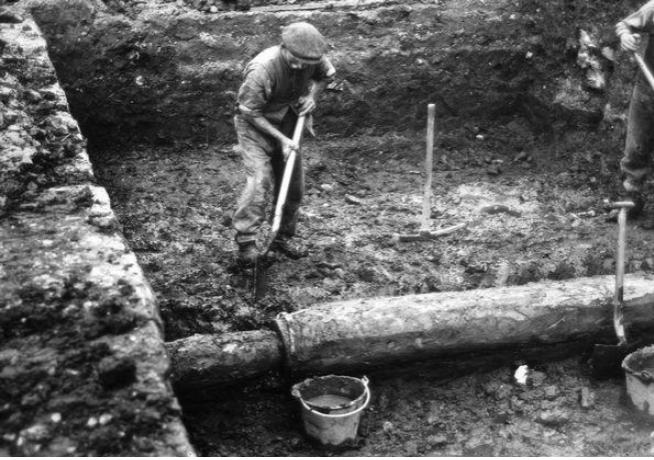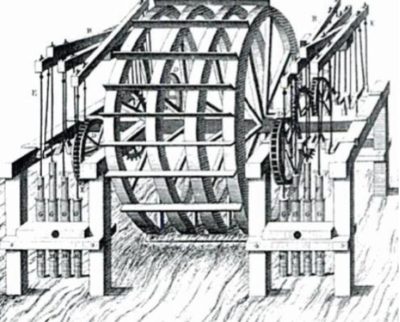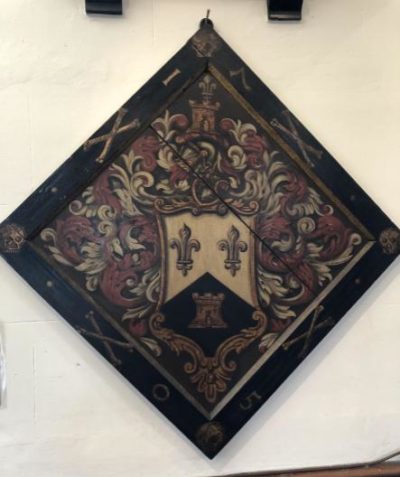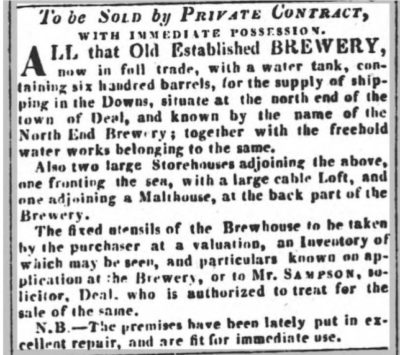Follow us on Facebook @FHofDW
Deal’s Early Freshwater Schemes
The Third News-sheet ~
Mr. Rider’s Case
Of course Ryder denied all these claims and his responses are also found in the third news-sheet. Also titled Mr. Rider’s Case it says that Warner knew of Ryder’s right and without consulting him began work, that the Archbishop did not then know of Ryder’s Title but is now willing to leave the decisions to Parliament. It goes on to give some details of Ryder’s opinion of how Warner proposed to provide the town with water.
It states that Warner was digging wells, one of which was very near to Tobias Bowles’ and that the water in it was ‘brackish’ Warner it says had purchased and was storing bored Fir pipes which he says “…Confirms the Ignorance of those employed in that Undertaking , for they crack and become useless…if not laid in time…” . George Sorocolds and a Mr. Ayres went down to Deal to view the work on their engine and stated that Warner’s work had by this time come to a halt and no engine was being prepared for it.
Feelings were obviously running high as the last paragraph questions the fact that Warner had stated he had spent £1,600 “…for which nothing but a Well that may be done for fifty Pounds, and some useless Fir Pipes…”
Mr. Warner’s Answer to Mr. Rider’s Reply.
Warner makes one last response in the fourth news-sheet where he again pushes the fact that the £2,500 was not money borrowed for the Water-works but had been borrowed by Sir Edward Griffin for whom he stood surety for.
All these claims and counterclaims did little good as William Ryder’s Scheme “to bring fresh water to the new town of Deal” received Royal Assent gaining its Act of Parliament on 12 June 1701.
The Act gives the basic details of what Ryder then intended to do. It also sets in law the protection for Ryder’s scheme but also for those people whose land that may be affected by the laying down of pipes or any other works associated with the scheme so that it “...may not be prejudicial or injurious unto the owner or occupier…” and as such The Constable of Dover Castle was authorised to hear any complaints and to “impanel a jury or Jurys of 12 men” if the need arose.
Warner did not give up though as his scheme did not rest on the authority of Parliament so he must have somehow changed his plans and by 1702 he had successfully completed the building of his scheme.
A Planning Meeting
In 1702 a meeting was held at the then The Three Kings Tavern, now The Royal Hotel, to decide where to make “…a Bason or other receptacle to receive the River Water to supply the Engine”.
W P D Stebbing suggests that this ‘engine’ could have been the horse-driven machine that was erected in Water Street to pump water drawn from the North Stream into conduits in the town. That being so this could be Ryder’s scheme as it was he who took his water from the North Stream, though the South Stream is sometimes mentioned in documents relating to him too.
In 1813 a Brewery at the North-end of Deal was put up for sale which included “…water tanks with six hundred barrels for the supply of shipping ……with the freehold waterworks belonging to the same …”



